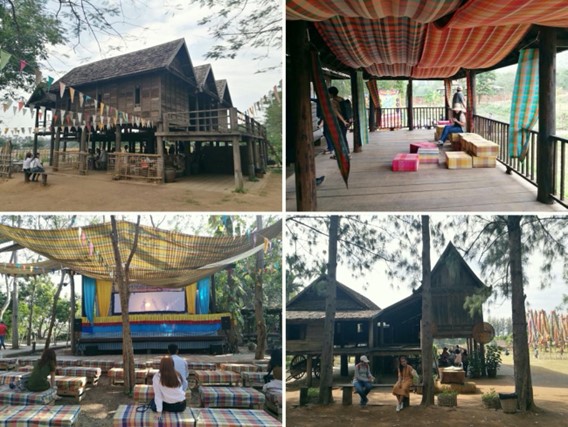Action before Perfection: The Characteristics of Diverse Approaches to Mastering Traditional Thai Carpentry | ลักษณะเด่นในการฝึกฝนช่างไม้สำหรับงานก่อสร้างอาคารไม้แบบโบราณในปัจจุบัน
DOI:
https://doi.org/10.26721/spafajournal.x5t52x893mKeywords:
knowledge transmission, traditional knowledge, traditional carpentry, thai carpentry, apprenticeship, การส่งต่อองค์ความรู้, ความรู้ช่าง, ช่างไม้ไทย, อาคารไม้โบราณAbstract
This paper examines the knowledge transmission mechanism and its characteristics of traditional Thai carpentry techniques in the present day to comprehend the current mechanism through the practices of four companies recognised for their expertise in traditional Thai carpentry. The seven characteristics of the traditional Japanese approach to learning by Gary DeCoker were employed to conceptualise the social phenomena. The finding suggests that despite the different approaches towards knowledge dissemination, the essence of learning remains similar to traditional apprenticeship, while the relationship between the master and the apprentice in Thailand is intriguing as it is complex yet flexible.
งานวิจัยนี้ศึกษารูปแบบและลักษณะเด่นในการส่งต่อองค์ความรู้ของช่างไม้ไทยเพื่อทำความเข้าใจกระบวนการถ่ายทอดและศึกษาวิชาช่างไม้ในปัจจุบัน โดยศึกษาผ่านสี่บริษัทที่มีประสบการณ์และเป็นที่ยอมรับในการทำงานทั้งสร้างใหม่ ซ่อมแซมและบูรณะอาคารไม้เก่าแก่ของไทย กรอบแนวคิดเชิงทฤษฎีอิงจากแนวคิดของ Gary DeCocker เรื่องลักษณะเด่นเจ็ดประการของรูปแบบการเรียนรู้วิชาช่างเก่าแก่ของญี่ปุ่น ผลการวิจัยพบว่าแม้แต่ละบริษัทจะมีรูปแบบการดำเนินงาน กระบวนการสร้างช่างไม้รุ่นใหม่และรูปแบบความสัมพันธ์ระหว่างศิษย์อาจารย์ที่แตกต่างกันไป แต่หัวใจสำคัญของการเรียนรู้มีความคล้ายคลึงกันซึ่งสอดคล้องกับรูปแบบการส่งต่อความรู้ระหว่างศิษย์อาจารย์แบบดั้งเดิม

Downloads
Published
How to Cite
Issue
Section
License
Copyright (c) 2024 SEAMEO SPAFA and Author

This work is licensed under a Creative Commons Attribution-NonCommercial-NoDerivatives 4.0 International License.



